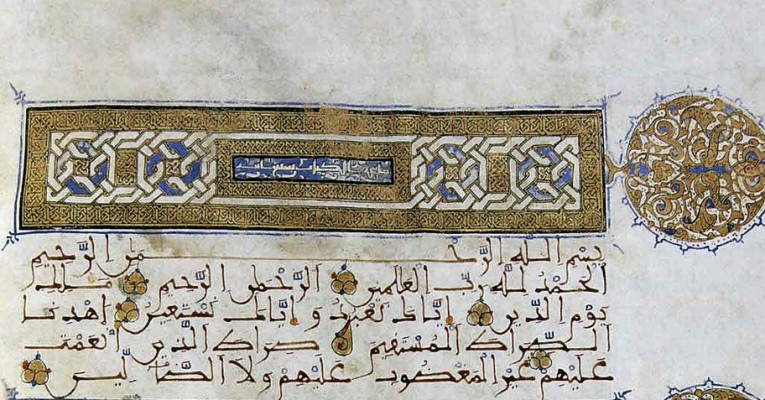
Surah Al-Faatihah – An Introduction
April 25, 2015
Revelation
Surah Faatiha is a Makki Surah (revealed in Makkah Mukarramah). Some Ulama say it is both a Makki and a Madani Surah, as it was revealed twice, the first time in Makkah Mukarramah and the second time in Madinah Munawwarah.
(Tuhfatul Qaari Fit Tajweed)
There is Ijmaa (consensus among the scholars) that there are seven verses in Surah al-Fatiha.
The Surah is named Al-Fatiha from the root word فتح Fataha (to open) as the Noble Quran is opened i.e starts with this Surah.
Surah al-Fatiha is the first Surah of the Qur’an according to Tarteeb (sequence of placement) not according to Nuzool (sequence of revelation) and it is the first Surah to be revealed in its entirety.
Names
Allamah Qurtubi رحمه الله (d. 271 AH) has enumerated 12 names of Surah Fatiha, whereas Imam Suyuti رحمه الله has mentioned in Al-Itqaan that Surah Fatiha has more than twenty names. This signifies its lofty status, as it is said:
كثرة الاسماء تدل على شرف المسمى
(An abundance of names indicates towards the honour of the thing being named)
Some names of the Surah include:
- Al Faatiha: The Opening
- Umm al Kitaab: Essence of the Book
- Umm al Quraan: Essence of the Quraan
- As Sab’u l-Mathaani: The seven often repeated verses. (due its frequent recitation in Salaah)
- Ash Shaafiyah: The Curative Dose
- Al Kaafiyah: The Sufficient
- Al Waafiyah: The Adequate
- Al Asaas: The Foundation
- Ash Shifaa: The Cure
- Al Hamd: The Praise.
Content
Surah Fatiha discusses the founding principles of Islam. It is a concise abstract of the whole Qur’an, condensed into one Surah. The rest of the Qur’an is its explanation.
It discusses the fundamentals of Aqeedah (belief), Ibaadah (worship), the concept of Yawmal-Qiyamah (Judgement day), Imaan (Bringing faith) in the blessed Sifaat (qualities) of Allah, the concept of Isti’aanah-bid-du’aa (seeking divine help through supplication), turning to Allah Ta’ala seeking guidance on the path of truth, adopting the path of the righteous and guided individuals (Saaliheen), abstaining from the path of the misguided and deviant ones, outlining the outcome of the fortunate and the fate of the wretched, guidance regarding holding firm to the commands of Allah and abstaining from his prohibitions.
It is like the Umm (mother), the essence in comparison to the other chapters (Surahs) of the Noble Qur’an. Therefore, it is also known as Umm-al-Qu’ran as it contains the crux and the foundation of Deen.
Virtues
- It is narrated in a Hadeeth that a blessed Surah, the like of Surah Fatiha has not been revealed to any other Nabi. (Mustadrak Haakim)
- Rasulullah ﷺ is reported to have said: “By oath on that being who has control of my life, the like of Surah Faatiha has neither been revealed in the Tawrah (Torah), Injeel (Bible) and Zaboor (Psalms), nor is there another Surah like it in the rest of the Quraan.” (Al-Qurtubi)
- It is reported by Abdul Maalik Bin Umair رضي الله عنه that Rasoolullah ﷺ said: “Surah Faatiha is a cure for all illnesses.” (Daarimi and Bayhaqi)
- Hadhrat Abdullah ibn Jaabir Radiyallahu Anhu reports that Surah Faatiha is a cure for all ailments. In another narration, it is mentioned that besides death, Surah Faatiha is a cure and medicine for all ailments.
- In some narrations it is narrated that Surah Fatiha is a cure from poison. (Baihaqi)
Sources and Further Reading:
